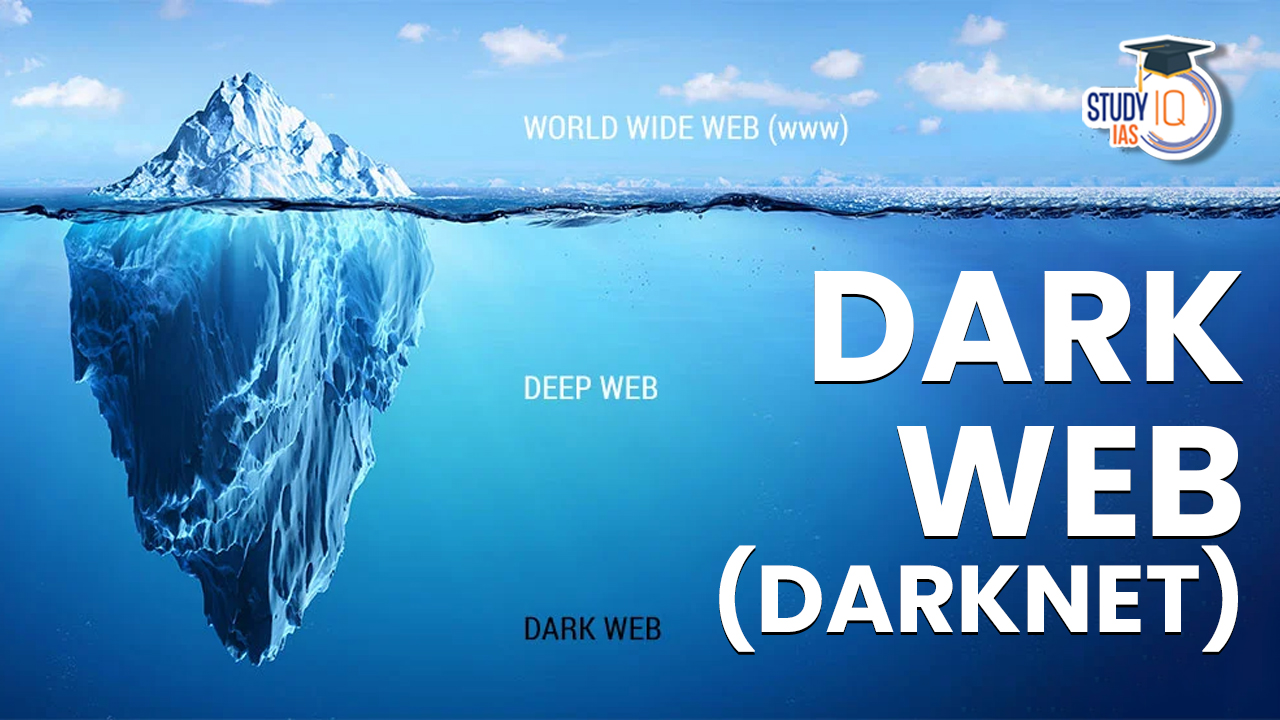Table of Contents
The Dark Web, often shrouded in mystery and intrigue, is a hidden corner of the internet that has captured the curiosity of many. The dark Web is a realm where anonymity is paramount, and conventional search engines won’t take you. In this article, we will delve into the Dark Web, also known as the Darknet, exploring what it is, how it works, its uses, and the associated risks and ethical considerations.
Aadhaar Data Leaked on Dark Web
A substantial data breach, uncovered by Resecurity, has exposed the personal information of approximately 81.5 crore Indian citizens on the dark web. This compromised data includes names, phone numbers, addresses, Aadhaar, and passport details, all available for sale online. ‘pwn0001,’ the threat actor responsible, offered access to this information on Breach Forums, with the entire database available for $80,000.
The Central Bureau of Investigation (CBI) is actively investigating the breach, while suspicions suggest the data might have originated from the Indian Council of Medical Research (ICMR). This incident reflects a larger trend of data exposure on the dark web, highlighting security vulnerabilities.
What is Dark Web?
The Dark Web is a part of the deep web, which itself is a subset of the internet that is not indexed by search engines. While the deep web encompasses any online content not indexed by search engines, the Dark Web specifically refers to websites and platforms that are intentionally hidden and can only be accessed through specialized software.
To access the Dark Web, users typically use anonymizing networks such as Tor (The Onion Router), I2P (Invisible Internet Project), or Freenet. These networks route internet traffic through multiple layers of encryption and anonymous servers, making it nearly impossible to trace users’ identities and locations.
Origin of Dark Web
The term ‘Dark Web’ can trace its origins back to the 1970s when the forerunner of the modern internet, ARPANET (Advanced Research Project Agency Network), featured a network of computers designed to accept data from ARPANET but refrain from responding to typical network pings.
The initial recorded instance of the dark web being employed for an online transaction hails from a trade between students at the Massachusetts Institute of Technology and Stanford University, involving the exchange of marijuana. Following this early transaction, the use of the dark web expanded dramatically, encompassing a wide range of both legal and illegal activities.
Dark networks on encryption of data, which provides privacy to the user’s identity. Specialized software like Tor (The Onion Router) or I2P (The Invisible Internet Project) are used to access this part of the internet.
How does the Dark Web Work?
The Dark Web operates through a combination of specialized technology and encryption techniques to provide users with a high level of anonymity and privacy. Here’s how it works:
Onion Routing
The backbone of the Dark Web is the use of onion routing, which is primarily facilitated by the Tor network (The Onion Router). When a user accesses the Dark Web using Tor, their internet traffic is routed through a series of volunteer-run servers called nodes. Each node peels away a layer of encryption (like the layers of an onion), making it extremely difficult to trace the user’s IP address back to its source. By the time the traffic exits the final node (exit node), it is typically untraceable.
Accessing Onion Websites
Websites on the Dark Web often have addresses ending in “.onion” rather than the usual “.com” or “.org.” These addresses are not indexed by traditional search engines and can only be accessed through Tor or other similar networks like I2P (Invisible Internet Project).
Encryption
The Dark Web relies heavily on encryption to secure communications and protect user identities. When users access websites or send messages on the Dark Web, the data is encrypted, making it unreadable to anyone trying to intercept it.
Anonymous Browsing
To access the Dark Web, users typically need a specialized web browser like the Tor Browser. This browser is configured to route internet traffic through the Tor network automatically. When users access websites through the Tor Browser, their IP addresses are effectively hidden.
Peer-to-Peer Networks
Some parts of the Dark Web operate on peer-to-peer (P2P) networks, where users directly connect to each other rather than through a central server. This further enhances anonymity by reducing the reliance on centralized infrastructure.
Cryptocurrencies
Many transactions on the Dark Web, especially on darknet marketplaces, are conducted using cryptocurrencies like Bitcoin. Cryptocurrencies provide a high degree of anonymity in financial transactions.
Hidden Services
Some websites on the Dark Web operate as “hidden services.” These sites are hosted on servers within the Tor network, making it challenging to identify their physical location or the identity of their operators. This adds an extra layer of anonymity for both website owners and visitors.
Surface Web, Deep Web and Dark Web
The internet is often divided into three main layers or levels, each with its own characteristics and accessibility. These layers are the Surface Web, the Deep Web, and the Dark Web. Let’s explore each of them:
Surface Web (Clear Web)
The Surface Web is the portion of the internet that is easily accessible and indexed by search engines like Google, Bing, and Yahoo.
It comprises websites and web pages that are intentionally designed to be available to the public and can be accessed without any special tools or permissions.
Examples of the Surface Web include news websites, e-commerce platforms, social media sites, blogs, educational resources, and most of the content that the average internet user encounters daily.
Deep Web
The Deep Web refers to the part of the internet that is not indexed by traditional search engines. It is often misunderstood as a place for illegal or secretive activities, but in reality, it encompasses a vast amount of legitimate and lawful content.
This hidden content includes databases, private websites, subscription-based services, password-protected pages, and confidential information like medical records or academic research.
Users can access the Deep Web through direct links or by logging in to specific websites or services that require authentication.
Dark Web
The Dark Web is a secretive and intentionally hidden part of the internet that is not indexed by standard search engines. Access to the Dark Web typically requires specialized software or configurations to ensure anonymity.
It is known for hosting websites and platforms that offer a high level of privacy and anonymity to users. While some legitimate purposes exist, the Dark Web is also notorious for facilitating illegal activities.
Activities on the Dark Web can include the sale of illegal drugs, firearms, stolen data, hacking tools, counterfeit currency, and other illicit goods and services.
The most common anonymizing network used to access the Dark Web is Tor (The Onion Router). It bounces internet traffic through multiple servers, making it extremely difficult to trace the source.
Uses of Dark Web
Anonymity
The primary allure of the Dark Web is anonymity. It provides a platform for individuals to communicate and share information without revealing their identities. This can be crucial for whistleblowers, political dissidents, or anyone who values privacy in the digital age.
Privacy Tools
The Dark Web hosts various privacy-enhancing tools, including encrypted email services, messaging apps, and virtual private networks (VPNs). These tools are used to protect one’s online communications from surveillance.
Marketplaces
Dark Web marketplaces are infamous for facilitating the sale of illegal goods and services, such as drugs, firearms, counterfeit currency, stolen data, and hacking tools. The Silk Road, one of the most well-known examples, was a marketplace for drugs and other illegal items before it was shut down by law enforcement.
Forums and Communities
Some portions of the Dark Web are dedicated to forums and communities where people discuss topics ranging from cybersecurity and hacking to political ideologies. These spaces can be used for both legitimate and illicit purposes.
Risks and Ethical Considerations of Dark Web
Illicit Activities
The Dark Web is infamous for hosting illegal activities. Engaging in these activities can have severe legal consequences. Law enforcement agencies around the world actively monitor and investigate criminal activities on the Dark Web.
Malware and Scams
Many websites on the Dark Web are riddled with malware, and scams are rampant. Users must exercise extreme caution to avoid falling victim to these threats.
Ethical Dilemmas
While the Dark Web offers a platform for free speech and privacy, it is also a breeding ground for extremist ideologies, hate speech, and criminal enterprises. Users must grapple with ethical considerations when navigating this hidden world.
Personal Safety
Revealing too much information or engaging with the wrong people on the Dark Web can jeopardize personal safety. Users should exercise extreme caution and adhere to best practices for online security.
Dark Web UPSC
The Dark Web, concealed within the layers of the internet, thrives on anonymity and encryption, primarily accessed through networks like Tor. It offers a refuge for those valuing privacy and free speech but is infamous for illegal activities. Its complexity, including onion routing and encryption, makes tracing user activities nearly impossible. While providing an invaluable platform for whistleblowers and privacy advocates, it poses ethical dilemmas and personal safety risks. Understanding the distinctions between the Surface, Deep, and Dark Web is vital, with the Dark Web’s intricate workings continuing to captivate curiosity and raise important questions about digital anonymity and security.


 Navy-Marine Expeditionary Ship Interdict...
Navy-Marine Expeditionary Ship Interdict...
 K2-18b Exoplanet: Potential Biosignature...
K2-18b Exoplanet: Potential Biosignature...
 Vehicle-to-Grid (V2G) Technology and its...
Vehicle-to-Grid (V2G) Technology and its...






















